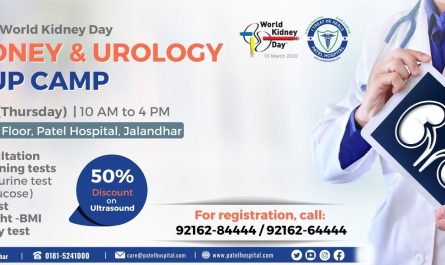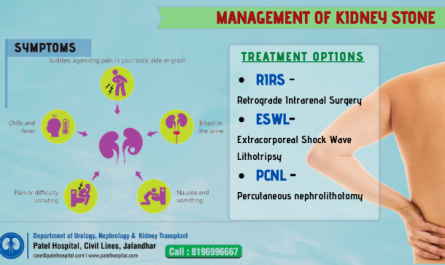Thyroid nodules are growths that develop within the thyroid, a gland in the front part of the neck. Most thyroid nodules are benign and don’t pose a serious risk to your health. However, even if the growth is not cancer, it still can grow big enough to the point where it affects your ability to breathe or swallow.
What symptoms can thyroid nodules cause?

Thyroid nodules don’t usually cause any symptoms but they can grow to the point where they:
- appear as a bump in the neck
- are visible to the eye
- can be felt under the skin
As they grow, thyroid nodules can alter the thyroid’s production of hormones, leading to hormone imbalance conditions like hyperthyroidism or hypothyroidism.
Can they cause weight gain?
One of the most common signs of thyroid disease is an unexplained gain in weight, which can indicate low thyroid hormone production, a disease known as hypothyroidism. On the other hand, hyperthyroidism, a disease that causes an increase in the production of thyroid hormones, can cause you to lose weight quickly if the thyroid generates more hormones than required.
What causes thyroid nodules?
There are many different reasons for the development of thyroid nodules:
- Iodine deficiency. Your thyroid glands may develop thyroid nodules if there is a lack of iodine in your diet. This is rarely the case as most people in developed countries have sufficient iodine in their diets.
- Thyroid cyst. The thyroid cysts are fluid-filled sacs and can occur when thyroid nodules break down. They are benign most of the time but can have solid portions which may be cancerous.
- Thyroiditis. The chronic inflammation of the thyroid, such as ‘Hashimoto’s disease’, can cause thyroid nodules to become swollen. Hashimoto’s disease is an autoimmune disorder where your white blood cells and antibodies attack the cells of the thyroid, mistakenly seeing it as a foreign object.
Can thyroid nodules turn cancerous?

Yes, they can. However, this is a small possibility. Your family’s history of endocrine cancers can increase the chances of developing thyroid cancer. Exposure to radiation, especially to the head and neck region, can also make you more likely to develop cancer of the thyroid.
The Heed & Neck Centre of Excellence at Patel Hospital has now treated over 500 patients with thyroid cancer including surgery with or without radioiodine ablation.
Can thyroid nodules go away on their own?
Yes, thyroid nodules can be resolved without treatment but this does not occur commonly. If you notice a lump in your neck, you should consult your doctor as he can monitor the size of your nodule.
Is it hereditary?
The incidence of thyroid nodules tends to run in families. If your parents have had thyroid nodules, you are more likely to develop them.
Treatment options for thyroid disorders?
If your condition is serious enough, your doctor might recommend that you go for a thyroidectomy, the removal of part of or the entire thyroid gland. How much is removed will vary based on the condition you have.
The Heed & Neck Centre of Excellence at Patel Hospital has now treated over 1500 patients with thyroid nodules surgically.
The following procedures are usually done to deal with cancers of the thyroid or to remove obstructions from the airway.

1. Hemithyroidectomy
Half of the thyroid (one lobe) is removed in this procedure. This is usually done when the nodule or tumour is confined to one lobe of the thyroid. The other lobe that remains in the neck will then function as a whole gland. This greatly reduces the likelihood of you needing to take thyroid hormone replacement therapy.
2. Total thyroidectomy
Your condition may have developed to a point where the whole thyroid gland must be removed. With the entire gland removed, you will be unable to produce thyroid hormones and will experience hypothyroidism. You will have to go through hormone replacement therapy, where you take doses of synthetic thyroid hormone every day.
Thyroid surgery can be performed without scars, utilizing state-of-the-art robotic technology. (This has been utilized in over 50 patients at Patel Hospital, Jalandhar.)

What to expect after Thyroidectomy
The thyroid gland is normally present in all individuals in the center of the lower neck.
Generally speaking, removal of the thyroid is required in three conditions: 1. Thyroid cancer; 2. A thyroid lump that produces a change in voice, difficulty in swallowing/breathing, or is otherwise suspicious on examination or ultrasound; 3. An overactive thyroid not responding to medicines and radioactive iodine.
This surgery generally does not produce any problems- if the entire thyroid is removed; the patient needs to take one tablet of synthetic thyroid hormone daily on an empty stomach. There is usually no need to take this tablet if only part of the thyroid is removed.
There is a small possibility of one of the following:
- After complete removal of the thyroid gland, there is a 5% (1 in 20) chance of low calcium levels, which is manifested by numbness or tingling sensation in the hands and feet, around the mouth, or around the stitch line. It usually resolves in a few days. If that happens, contact your doctor if you have already been discharged he will start you on oral calcium pilis.
- After partial or complete removal of the thyroid gland, there is a 1-5% (1 in 100 to 1 in 20) possibility of change in voice, which happens either due to (a)some traction on a very delicate nerve supplying the vocal cords. If this happens, the voice usually becomes normal within a few weeks to months, or (b) vocal cord irritation by the anaesthesia breathing tube. If this happens, the voice usually becomes normal within a few days. This is not life-threatening, and is usually self-resolving.
There will be a small scar in the middle of the neck, which can be well concealed by clothing and cosmetics
When to see a doctor
While it may be less likely that your nodules are cancerous, consult your doctor to get an accurate diagnosis, even if you don’t have any other symptoms. Early cancer detection can make a big difference in your recovery process. You should also see a doctor immediately if you are having problems swallowing or breathing.
For more information or any query, call us at – 9216284444 / 0181-5241000 or reach us at care@patelhospital.com



